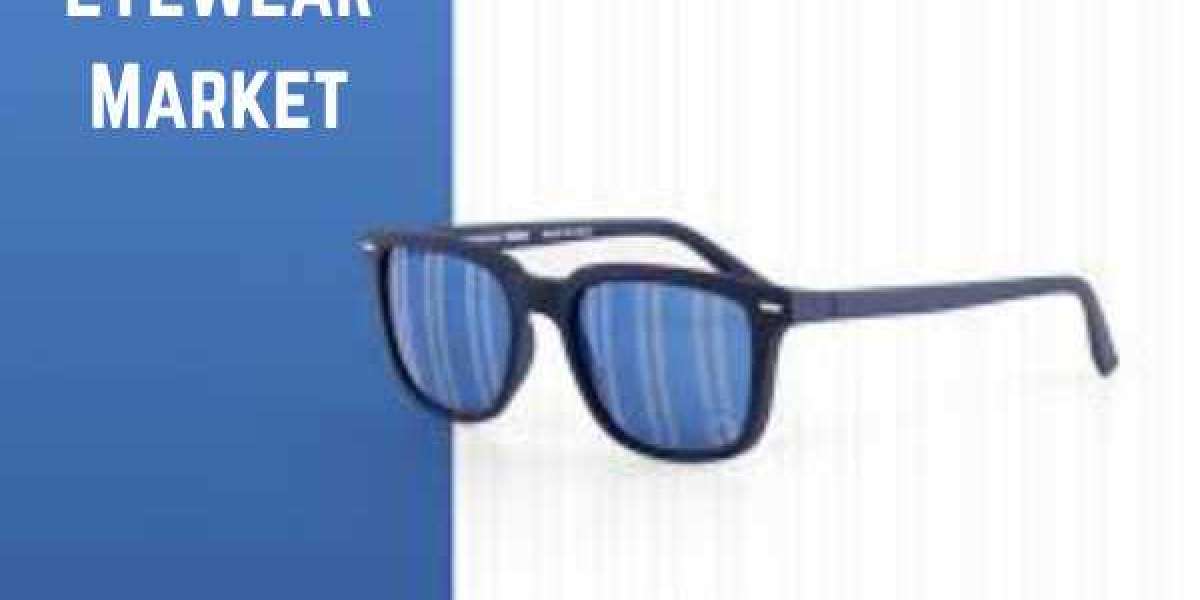The global eyewear market is expected to grow at a compound annual growth rate (CAGR) of 6% over the next ten years, from a valuation of US$ 130.4 billion in 2024 to US$ 233.5 billion by 2034, due to shifting fashion trends and a growing emphasis on eye health.
In addition to consumers' growing emphasis on eye health, new fashion trends and technological advancements are supporting the growth of the eyewear market. Customers' worries regarding the level of strain and potential long-term effects on their eyes have increased due to the widespread usage of digital devices.
Download a Sample Copy Of Report:
https://www.factmr.com/connectus/sample?flag=Srep_id=9975
Once mostly considered a necessary tool for correcting vision, eyewear has developed into a fashion statement and a way of life item. The eyewear industry provides a wide array of solutions to accommodate personal tastes and requirements, ranging from prescription glasses to sunglasses and contact lenses. The diverse world of the eyewear market is examined in this article, which also looks at major trends, growth drivers, and innovation in the industry.
Competitive Landscape:
Because of the growing consumer desire for fashionable products at affordable rates, eyewear producers are concentrating on producing these goods. A number of firms are reacting to current fashion trends by launching new designs and patterns.
- The Voyage eyewear company debuted its exclusive Voyage Women platform, which offers women's sunglasses, in October 2023.
- A newcomer to the high-end unisex eyeglasses market, Shisen Fox, debuted a line of handcrafted Japanese eyewear in December 2023.
The Development of Eyewear:
From its modest beginnings as a practical tool for vision correction, eyewear has advanced significantly. In order to meet the varied interests and lifestyles of consumers, it now includes a broad range of styles, materials, and technology. Prescription glasses are still necessary for correcting eyesight, but sunglasses have become fashionable accessories that protect against UV rays and add style. Furthermore, contact lenses offer a practical substitute for individuals who want to be free of glasses, which broadens the market for eyeglasses.
Growth catalysts and market dynamics:
Technological improvements, fashion trends, and changing demographics are some of the drivers driving the eyewear market. Prescription eyewear is in high demand due to an increase in incidences of vision-related conditions including myopia and presbyopia brought on by the aging population and the growing use of digital gadgets. Additionally, sales of sunglasses with UV-blocking lenses have increased as a result of increased awareness of the need of protecting the eyes from UV radiation. The usefulness and attractiveness of eyewear have been improved by lens technological breakthroughs including anti-reflective coatings and blue light filters, which have further fueled market expansion.
Key Companies Profiled:
- Luxottica Group S.p.A.
- Essilor International SAS
- Johnson Johnson Vision Care, Inc.
- Safilo Group S.p.A.
- Alcon Vision LLC
- Carl Zeiss AG
- Cooper Companies
- GrandVision
- Prada S.p.A
- Valeant Pharmaceuticals International, Inc.
- Silhouette International Schmied AG
- LVMH Group
- Marcolin SpA
- De Rigo Vision SpA
- Hoya Corporation
- Fielmann AG
Important Market Trends:
The development of the eyewear market is being shaped by several trends. The merging of fashion and technology is one prominent trend, whereby tech businesses and fashion designers work together to create cutting-edge and fashionable items made by eyewear brands. In the eyewear industry, smart glasses—which come with features like fitness monitoring sensors and augmented reality displays—represent the fusion of fashion and technology. Furthermore, consumers are looking for eco-friendly eyewear solutions consisting of recycled materials and biodegradable plastics, as sustainability has become a major trend.
Opportunities and Difficulties in the Market:
The eyewear market is growing, but it still confronts obstacles from regulations, competing products, and pricing pressure. These difficulties do, yet, also offer chances for uniqueness and invention. Eyewear businesses may improve the buying experience and lower returns by utilizing digital technology like augmented reality apps and virtual try-on tools. This will increase consumer happiness and loyalty. Additionally, companies can set themselves apart by concentrating on specialty markets that meet certain customer demands and preferences, such as luxury designer frames or sports eyeglasses.
Read More:
https://www.factmr.com/report/eyewear-market
Prospects for the Future:
Looking ahead, the eyewear market seems to have a bright future. The market for fashionable and useful eyeglasses is predicted to grow as attention turns to wellbeing, health, and fashion. Furthermore, there is a chance for eyewear businesses to provide products that blend comfort, style, and performance as technology breakthroughs continue to spur innovation in lens materials, coatings, and designs. Stakeholders in the eyewear market may traverse the changing terrain and take advantage of the enormous opportunities given by this dynamic and important business by remaining aware of market trends, embracing innovation, and providing excellent quality and value.
Segmentation of Eyewear Market Research:
- By Product :
- Spectacles
- Sunglasses
- Contact Lenses
- Sports Eyewear
- By Material :
- Metal Eyewear
- Plastic Eyewear
- By Price Range :
- Below US$ 15
- US$ 15 to 35
- Above US$ 35
- By End User :
- Men
- Women
- Unisex
- Kids
- By Sales Channel :
- Clinics Hospitals
- Modern Trade
- Multi-brand Stores
- Optical Stores
- Online Retailing
- By Region :
- North America
- Europe
- Latin America
- East Asia
- South Asia Oceania
- Middle East Africa
In summary, the eyewear market is a thriving and developing sector of the fashion and medical industries. Eyewear has evolved beyond its traditional function to become a representation of uniqueness and personality thanks to its innovative blend of style, utility, and design. Brands may continue to satisfy the changing demands and tastes of consumers by remaining flexible, responsive, and creative. This will guarantee that everyone can look forward to the future with clarity and style.



